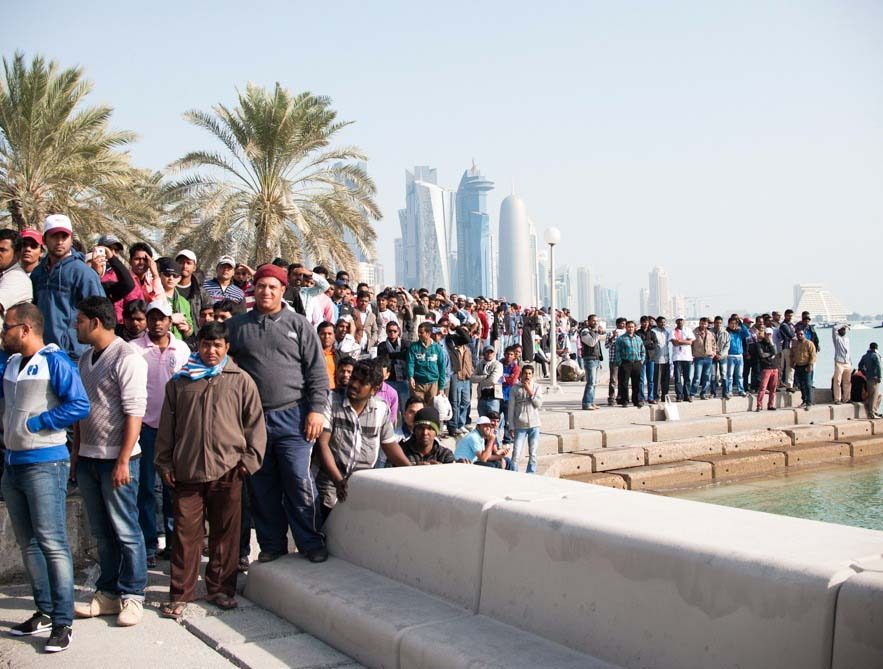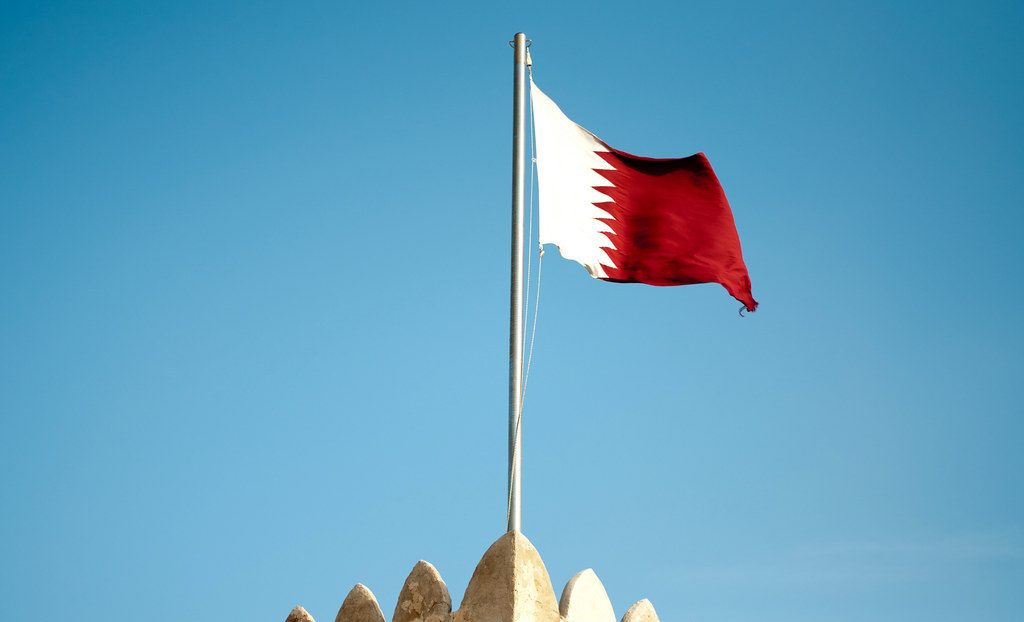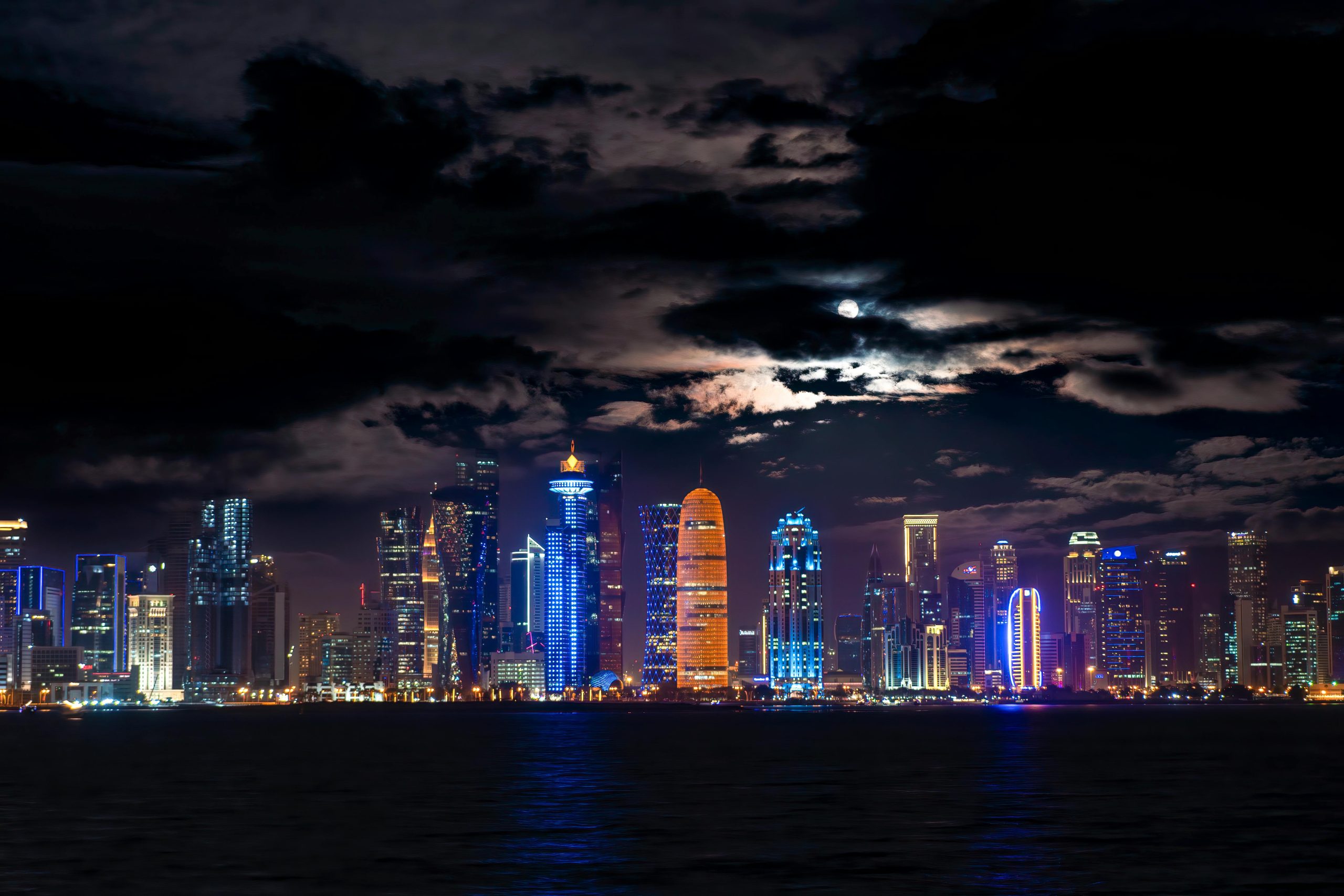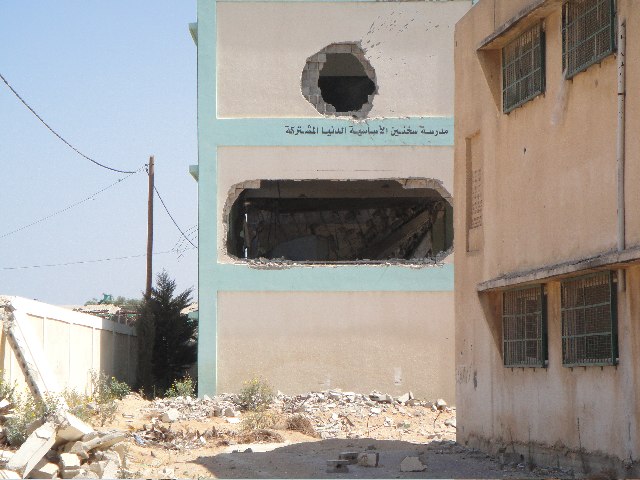
After working as a lawyer in Qatar since 2013, entrepreneur Kristen Jarvis Johnson left the country earlier this year. Here, she admits regretting staying silent about rights violations during her time here, and urges other expats to do more to challenge the status quo.
I have always been a strong human rights advocate. Yet while in Qatar, I felt unable to speak out about the problems I witnessed there.
Six months after leaving, I am still haunted by the thousands of people working under harsh conditions to prepare for the 2022 World Cup and to build the country’s infrastructure.
All of these workers are employed under the kafala (sponsorship) system, one that many people in Qatar are quick to criticize behind closed doors.
But many expats remain publicly silent about these issues while living in the country.
This could be because we initially find ourselves excited about a new job, lifestyle and networking prospects.
And we may not have first realized the nature or extent of the kafala problem.
But once the dark realization sets in that we are supporting modern day slavery, we feel that we risk our reputation and livelihood if we speak out.
Legal threat
The country’s cybercrime law makes criticism online even more risky.
While in Qatar, I researched this law thoroughly, and even consulted with local experts on its intent and interpretation.
The bottom line is that what everyone fears is true: The consequences of contrarian speech are drastic and create huge risk for those who wish to voice an opinion.

The law is incredibly broad and leaves room for law enforcement to arrest any person whose published speech violates “social values.”
So most expats wait to speak up, if at all, until after they have completed their stay in Qatar. This leads to criticism about people living large while in the country who only publish scathing commentaries after they leave.
It’s more complex than this, but it is true. Most do wait until they are outside the jurisdiction of Qatar to speak up. I know I did.
Barred exit
I practiced law in Qatar for the past several years.
To me, one of the most shocking things was that although it’s the richest country in the world and is developing at light speed, Qatar’s employment and labor sectors were sorely under-developed.
They also failed when it came to respecting the most basic human rights standards.

While there, I observed the contrast between those free to leave and those laboring under the sun.
It was clear that the human toll is great. Laborers in Qatar cannot simply quit their jobs and go home, and they have no true recourse to challenge abhorrent working conditions.
Under the current law, a person who is not a citizen of Qatar may be held indefinitely within the country despite pleas to leave.
Without an exit permit, an employee who leaves his job can be detained at any port of exit, and jailed or returned to his/her employer.
Even the reforms to kafala, which are due to come into force in December, do not change this basic and severely fundamental problem in the law.
The obvious reason the system has not changed is because convenience and cost savings in Qatar have won over human rights.
Ignoring the human cost
Many attempts have been made to paint a beautiful picture of the upcoming World Cup to obscure the human cost.
Some journalists have been thwarted from publishing investigative pieces to downplay the severity of the problem.

Meanwhile, even powerful imagery of slavery-themed advertisements has not stopped most corporate sponsorship of the games.
The funny thing is, I cannot think of a single Qatari person I met who did not appear caring and thoughtful about humanity and the country.
Generally speaking, Qataris are wonderful people. And if you asked one whether they support slavery, they would almost certainly denounce the practice as wrong.
But individuals’ opinions stand in stark contrast to the true state of the kafala system.
There’s no doubt it fosters abuse, and we continue to hear of workers yearning to leave, workers who endure horrific working and living conditions and workers who feel trapped.
Over and over again.
Speaking out
This is why we, the international community, must continue to stand up for the rights of those slaving away on Qatar’s World Cup preparations.
We can implore the leaders of Qatar to scrutinize their legal system, to get rid of laws that violate basic human rights and to protect the workers building the nation’s infrastructure.

We can challenge those supporting this system to think hard about their choice to do so.
On the business end, corporate sponsors should also outline the minimum standards required to preserve their sponsorship.
And even when we feel powerless, we can invoke the power of education by teaching those around us through our everyday interactions how prioritizing dignity and human rights leads to a happier workforce, loyalty, quality and contentment.
Prioritizing these values is what will make Qatar far greater than its beautiful buildings and sporting events.
Shared responsibility
Whether you are like me, an expat who benefited in many ways from the wealth and growth of the country, or you are someone new to Qatar who is thinking about attending the 2022 World Cup, we all indirectly contribute to the plight of enslaved workers.
It’s an enormous moral morass.

Many great people live and work in Qatar and disapprove of the system. But even so, we all end up sharing responsibility for the problem through complacency or silence.
The World Cup is just around the corner. At that time, the world will join together in Qatar to celebrate and compete in a most beloved sport.
Let’s join together now to stand up for those helping to build the infrastructure and venues. Please, Qatar, let every person be free.
Disclaimer: The views expressed in this Opinion article are the author’s own and do not necessarily reflect Doha News’ editorial policy.







